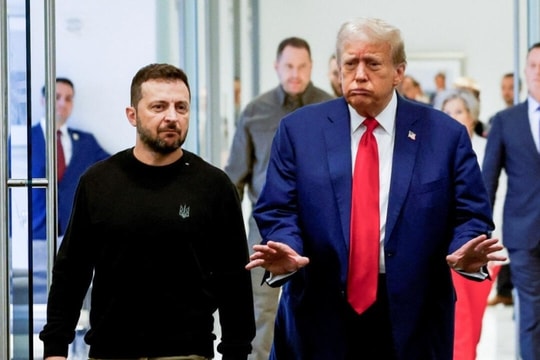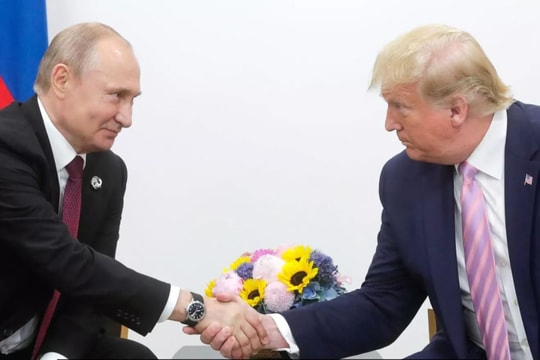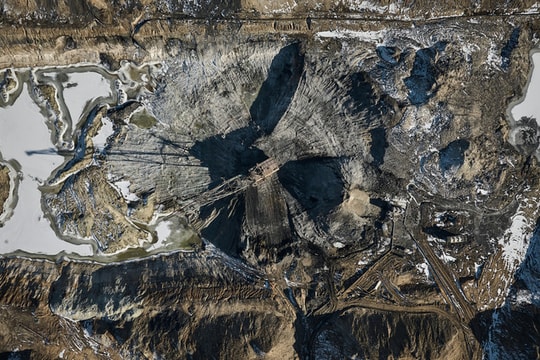Legal loopholes in US-Ukraine mineral deal
The text of the US-Ukraine mineral deal “looks like a pretty good deal for both sides,” but there are still many legal loopholes that need to be ironed out during the leaders’ meeting in Washington.
.jpg)
A framework agreement provides the United States with access to Ukraine’s natural resource revenues in exchange for security guarantees, but experts say the deal is believed to contain legal loopholes that will need to be filled in talks between the two countries’ leaders in Washington.
According to Reuters, the draft agreement seen by the news agency stipulates the establishment of a "Reconstruction Investment Fund" jointly managed by the US and Ukraine. The draft contains reassuring content, but the US does not provide Kiev with the security guarantees it wants.
The deal is expected to be signed on February 28, Washington time, when US President Donald Trump meets with Ukrainian President Volodymyr Zelensky. The deal calls for the Ukrainian government to contribute 50% of the cash of any state-owned natural resource assets to the fund. But the agreement does not provide an amount, a timeline or details about how the fund will be managed.
That is not surprising and is what one would expect from a framework agreement, said Brian McGarry, associate professor of international law at Leiden University, who has advised developing countries on treaty negotiations.
“It creates obligations of cooperation, but without any specific binding commitments of a defense nature. That’s exactly what we see in this agreement. The US has not made specific guarantees,” McGarry said.
The text “looks like a pretty good deal for both sides,” said a diplomatic source, who asked not to be identified to discuss sensitive matters.
While there are no security guarantees, the terms outlined in the framework could come as a relief to Ukraine, with President Trump dropping his initial demand for $500 billion in compensation for military assistance already provided.
Ukrainian President Zelensky said on February 26 that the success of the mineral deal would depend on negotiations with President Trump, despite the lack of firm US security guarantees.
The document says the funds will be reinvested “to promote the safety, security and prosperity of Ukraine” and will be set out in a fund agreement that will address future financial distributions.
The document states that the US government “will maintain a long-term financial commitment to the development of an economically stable and prosperous Ukraine,” but does not specify what that means.
The details will have to be worked out in future negotiations to result in a binding treaty, McGarry added.
Unprecedented approach
One striking element, according to McGarry, is that the draft states that, in future negotiations on the fund, Ukraine and the United States “will endeavor to avoid conflicts with Ukraine’s obligations” on its path to joining the European Union.
“There is at least in principle interesting political support for that process,” Mr McGarry said, amid Washington’s increasingly hostile stance towards the EU.
Ukraine has reserves of 22 out of 34 minerals identified by the EU as important, including industrial and construction materials, ferroalloys, precious and non-ferrous metals, and some rare earth elements.
President Trump’s goal appears to be twofold. Withdrawing US financial and military support for Ukraine, and limiting US dependence on Chinese resources.
China, with which President Trump has threatened to wage a trade war, is the world’s largest producer of rare earths – resources used to make magnets in electric vehicles, weapons and electronics.
The framework agreement does not include a dispute resolution mechanism, and Washington's share of the future fund is still under discussion, said Duke University international law professor Tim Meyer.
“This agreement shows some uncertainty on the U.S. side about whether the government has the authority to take the kind of interest in the fund that the agreement mentions,” he said, adding that a negotiated fund deal would likely need congressional approval.
The framework offers “a unique and unprecedented approach” not seen in other national agreements, said Guillermo Christensen, a national security and international trade expert at the US law firm K&L Gates.




.png)

